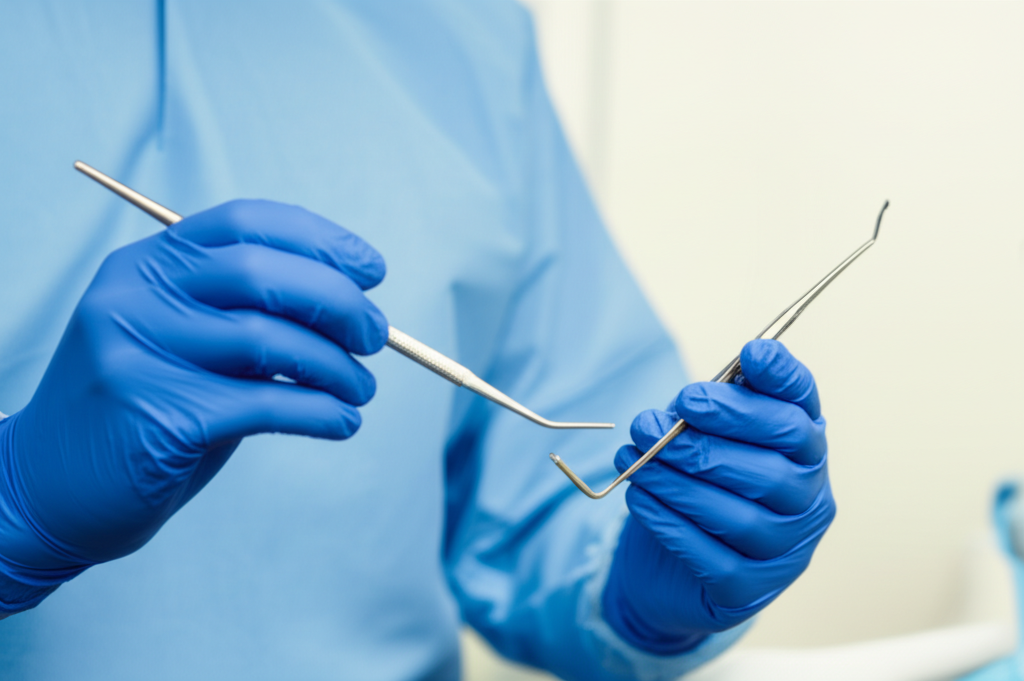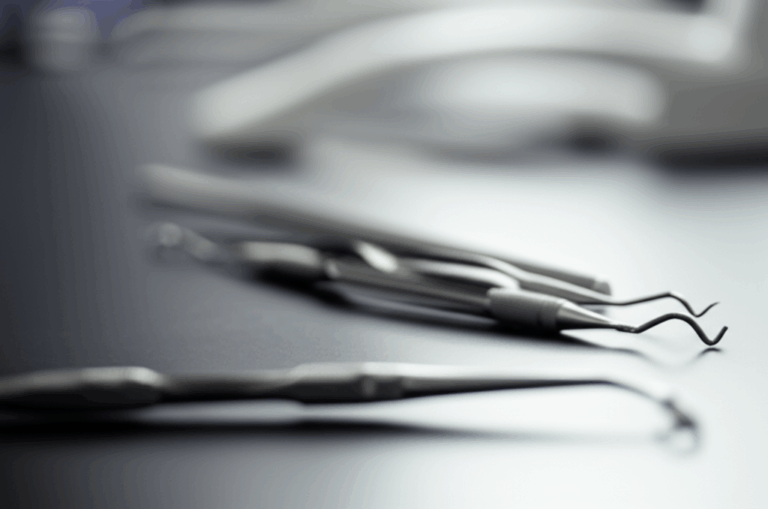
Are Oral Surgeons More Expensive Than General Dentists? The Truth About Specialized Dental Costs
You might be asking if it costs more to see an oral surgeon than a regular dentist. The quick answer is: yes, it usually does. The higher cost isn’t random—it shows the extra years of training, more advanced tools, anesthesia know-how, and the tough jobs oral surgeons handle. In this guide, I’ll break down why the prices are different, where you see it most, what affects the final bill, how insurance fits in, and how you can manage costs without risking your health.
In This Article
- Why Oral Surgeons Cost More: What You’re Paying For
- Procedure Differences: When the Price Really Changes
- What Makes Oral Surgery Pricier?
- Insurance: Dental vs. Medical & What It Means for You
- How to Keep Oral Surgery Costs Down
- Are the Extra Fees Worth It? Trusting Experience
- Dentist or Oral Surgeon? How to Pick
- Frequently Asked Questions
- Wrapping Up: Picking Wisely for Your Mouth
Why Oral Surgeons Cost More: What You’re Paying For
Extra School and Training
Oral surgeons, also called oral and maxillofacial surgeons (OMS), go to dental school, then do a surgical residency for 4-6 more years. In this time, they learn everything about surgery for the mouth, jaws, and face, including anesthesia, injuries, and tough procedures. Many also get board certified, which means they passed tough tests and keep learning every year.
This matters because tricky surgery needs a steady hand and a lot of know-how. Knowing how to avoid nerves, handle bone, and fix problems takes more than a weekend workshop—you’re paying for real skill and safety.
What They Do vs. Regular Dentists
General dentists are great for regular care—cleanings, fillings, crowns, simple tooth pulling, and preventing problems. Some can even pull wisdom teeth or put in regular implants after extra classes. Oral surgeons take on the harder stuff:
- Pulling buried or stuck wisdom teeth
- Putting in implants where the bone isn’t great
- Rebuilding jaws with extra bone
- Fixing jaw joint (TMJ) issues that need surgery
- Cutting and moving jaws to improve bites
- Checking and removing lumps, bumps, or sores in the mouth
Tougher jobs take longer, need more planning, and have higher risks, so they cost more.
Better Tools and Setups
Oral surgeons’ offices often have tech like 3D X-rays (CBCT scans), special dental drills, bone grafting gear, and strong sterilization steps, plus hospital rights for big cases. These add up but also add safety.
Anesthesia Skills
Oral surgeons learn to use IV sedation and sometimes general anesthesia, safely, with special machines and staff. This makes big or scary procedures easier, but also raises the price since more drugs, gear, and people are needed.
Procedure Differences: When the Price Really Changes
Wisdom Teeth Removal
- Simple vs. Hard: If the tooth is all the way out, your dentist might remove it for $75-$300 per tooth. Oral surgeons may charge $150-$400 for the easy cases. For stuck teeth deep in the jaw, oral surgeons usually charge $500-$1,200 per tooth.
- Numbing & Sedation: Local numbing is included. If you need to “sleep” with IV or general anesthesia, it adds hundreds or thousands.
Dental Implants
- Surgery vs. Putting on the Tooth: The oral surgeon places the implant screw (the “root”)—this is $1,500-$3,000 not counting the “tooth” (crown) or connector (abutment) your general dentist usually places.
- Add-on Procedures: Bone grafts can run $400-$2,500 each. A sinus lift is $1,500-$3,500 a side.
Tricky Tooth Removal
Broken teeth, curved roots, or failure after a root canal? Oral surgeons deal with these for about $300-$800 per tooth.
Jaw Surgery
This is for jaw problems and is always done by an oral surgeon, usually in a hospital. Costs are higher and sometimes medical insurance helps if it’s needed for health reasons.
Finding and Removing Lumps (Oral Pathology)
Oral surgeons check, biopsy, and remove odd spots in the mouth. The cost depends on what they do—removing tissue, sending it to a lab, special X-rays—and includes follow-up too.
Other Specialized Jobs
- End-of-root (apicoectomy) surgery for infections
- Cutting attachments that hold the lip or tongue (frenectomy)
- Gum surgery for crown or bridge work
- TMJ surgery for jaw pain
- Reshaping bone to fit dentures
- Making space for braces by uncovering teeth
What Makes Oral Surgery Pricier?
Where You Live
Cities usually cost more than rural spots.
How Hard the Job Is
Short, simple jobs are cheaper. Anything that takes longer or is more complicated will cost more.
Anesthesia Choices
- Local numbing: included in fee
- Laughing gas: $50-$200 per visit
- IV sedation: $400-$1,200/hour
- General anesthesia: $500-$2,000+ per hour (if at a hospital with an anesthesiologist)
Experience of the Surgeon
More experienced or board-certified surgeons often charge more, but you’re paying for safer, more reliable results.
Facility Fees
If you need a hospital room or special surgery center, add $500-$5,000 or more.
Prep and Recovery Care
Remember add-ons:
- Consult visits: $100-$250
- Regular X-rays: $100-$250
- CBCT scans: $250-$600
- Follow-ups
- Prescriptions
- Nightguards if needed
Insurance: Dental vs. Medical & What It Means for You
Dental Insurance
Dental plans often:
- Limit yearly payouts (max $1,000-$2,000)
- Have deductibles/copays
- Cover only part of some surgeries (like wisdom teeth or biopsies)
- May require you to use in-network doctors
Your oral surgeon’s office can help check what’s covered.
Medical Insurance
Medical plans might help if the surgery is needed because of an accident or a health issue, like:
- Jaw surgery for real jaw problems or sleep apnea
- Fixing injuries from an accident
- Removing tumors or infections needing a hospital
Check both your dental and medical plans. Ask about approval before you start.
Other Plans
- PPOs vs. HMOs handle referrals and networks differently
- Medicare: Only pays dental bills when it’s connected to a covered medical procedure
- Medicaid: Rules by state, usually covers extractions if needed
- Military insurance and VA: Different rules for eligibility
Your Share of Bills
Even with insurance, you’ll pay some out of pocket. If you max out your dental plan early, the rest is on you. Always ask for a written, itemized estimate.
How to Keep Oral Surgery Costs Down
Get a Simple, Clear Estimate
Ask for a piece of paper that shows all fees:
- Surgeon
- Facility
- Anesthesia
- X-rays
- Meds
- Labs
- Follow-up
Check Insurance
Call both your dental and medical insurance. Ask about:
- Deductibles & max payout
- What percentage is covered
- If they require approvals
- If your surgeon is “in-network”
Look at Payment Plans
Some offices offer payment plans. Companies like CareCredit help you pay over time. Ask about the interest.
Check Dental School Clinics or Community Programs
Dental school clinics cost less since students do the work under watch. Public health clinics help for emergencies, but waits can be longer and not all procedures are offered.
Get a Second Opinion
For big jobs (like full mouth implants or jaw surgery), another expert’s advice can save money and give you peace of mind.
Ask About Bundled Deals
Some offices combine costs for things like wisdom teeth removal plus sedation or implants plus the “tooth.” Ask what’s really included.
Time it Smart & Prevent Future Bills
- If you’ve already paid your deductible, get big work done before year’s end
- Keep up with cleanings and checkups
- Use a nightguard if your dentist suggests one to protect your new teeth
Are the Extra Fees Worth It? Trusting Experience
In many cases, yes. A skilled oral surgeon can mean less pain, faster healing, and a lower chance of problems later. Placing implants the right way now helps them last. Having wisdom teeth pulled safely now saves on infections or nerve issues later. Skimping on costs with tough jobs often leads to higher bills down the road.
Dentist or Oral Surgeon? How to Pick
Start with Your Regular Dentist
They can do:
- Easy tooth pulling for teeth you see
- Simple gum care
- Some basic implants
- Fillings, crowns, cleanings
Go to an Oral Surgeon if:
- Your wisdom teeth are buried, close to nerves, or tricky
- The extraction is hard (broken, odd roots, deep)
- You need an implant with extra bone or sinus work
- You need jaw surgery, treatment for an injury, or strange lumps/bumps
- You want to be “knocked out” or have medical problems needing extra caution
How Do Other Specialists Fit In?
- Periodontist: for gum and bone work, lots of implants
- Endodontist: for tough root canals or root infections
- Prosthodontist: for complicated dentures, crowns, or mouth makeovers
Pick the right expert for your need—sometimes a team works best.
Frequently Asked Questions
Are oral surgeons medical doctors?
Oral surgeons finish dental school. Some get an MD during their training, but it’s not required. All train in surgery and anesthesia. Board certification means they passed tough standards.
Do oral surgeons charge more for a first visit?
Yes, usually $100 to $250 for a consult. Some offices take that off your bill if you go ahead with treatment.
How much more does it cost than the dentist?
For jobs both can do, oral surgeons may charge 10% to 50% more. For things only surgeons do, like jaw surgery, hospital and anesthesia fees make the gap bigger.
Why are anesthesia fees so high?
IV and general anesthesia take special training, more people, time, and drugs. IV sedation is usually $400-$1,200 an hour, hospital general anesthesia often starts at $500 an hour.
Why does office vs. hospital matter?
Having surgery in the office is cheaper. If you need a hospital (bigger cases), add room and staff fees.
How does insurance pay for oral surgery?
- Dental insurance: covers a set percentage until you hit your max
- Medical insurance: sometimes covers jobs tied to medical problems
- PPO: can pick your doctor, higher out-of-network costs
- HMO: must use network doctors, needs referrals
- Medicare & Medicaid: limited coverage
- Military/VA: different for each plan
What do X-rays cost?
Regular panoramic X-rays: $100-$250. CBCT 3D scans: $250-$600.
What if there’s a problem?
More visits or medicine may be needed. Ask what’s included up front. Always call the surgeon first if something feels wrong.
How can I save money and still be safe?
- Use just local anesthesia if you can
- Spread out big jobs into steps
- Use in-network providers
- Consider dental school clinics
- Look into payment/discount plans
- Brush and floss well to avoid repeat surgeries
Is “dental tourism” worth the risk?
Flying overseas for cheap surgery can look good, but travel, follow-up, or fixing mistakes can cost more. Big jobs like implants or jaw surgery are best handled close to home with people you trust.
How do labs change costs?
Your dentist or prosthodontist uses a lab for the tooth part (crowns, bridges). Good materials and fit make things last longer. Surgical fees cover the placing, while lab fees cover the final teeth.
Helpful context and resources:
- Your general dentist stays your main point for referrals and checkups. A directory can help you find a trusted dentist.
- Curious about implants? Get the dental implant basics.
- Want to know what happens behind the scenes at a dental lab? Learn about implant dental laboratory.
Cost Snapshots (Typical Ranges)
These are common numbers from surveys and dental offices. Your price may be higher or lower.
| Procedure | General Dentist | Oral Surgeon |
|---|---|---|
| Simple tooth pull | $75–$300 (per tooth) | $150–$400 (per tooth) |
| Surgical tooth pull | $200–$600 (per tooth) | $300–$800 (per tooth) |
| Impacted wisdom tooth removal | – | $500–$1,200 (per tooth) |
| Implant placement | – | $1,500–$3,000 (per post) |
| Bone grafting | – | $400–$2,500 (per site) |
| Sinus lift | – | $1,500–$3,500 (per side) |
| Nitrous oxide (laughing gas) | $50–$200 (per visit) | – |
| IV sedation | – | $400–$1,200 (per hour) |
| General anesthesia (hospital) | – | $500–$2,000+ (per hour) |
| Panoramic X-ray | $100–$250 | – |
| 3D CBCT scan | $250–$600 | – |
| Oral surgery consult | – | $100–$250 |
Other Things that Affect Cost
- Where you live (city or country)
- Surgeon’s experience
- If it’s an emergency/after hours
- Long or tough cases cost more
- More follow-up visits, X-rays, or care
- Hitting insurance payout max early in the year
When Oral Surgeons Save You Money Long Term
Sometimes paying more saves you in the end:
- Implants in the right spot stay healthy longer
- Fully removed wisdom teeth means fewer infections
- Good bone grafting means stronger, longer-lasting teeth
- Jaw surgery can help chewing and protect other teeth
Think of it like building a house—a strong base costs more up front, but needs fewer repairs later.
Warning Signs—Ask Questions If You See:
- Very low price but no proof of safety or monitoring
- Office can’t explain what the fee covers
- Skips scans or imaging when it’s needed
- Doctor can’t clearly talk about risks, choices, and what to expect
A good office welcomes your questions.
Special Situations
- TMJ problems: Often treated without surgery; surgery only when needed and explained by a surgeon
- Sleep apnea surgery: Sometimes a jaw move is needed; surgeon works with other doctors
- Cleft palate/facial needs: Team of experts, including surgeon
- Accidents: Oral surgeons fix broken facial bones and teeth; medical insurance often covers these
Wrapping Up: Picking Wisely for Your Mouth
Quick Points:
- Oral surgeons usually cost more because of their extra training, equipment, and anesthesia skills
- The biggest price differences are for tough jobs like wisdom teeth, implants, bone or sinus work, jaw surgery, and odd lumps
- Anesthesia type, where you live, case difficulty, experience, and hospital needs all affect the bill
- Dental insurance helps some, but out-of-pocket costs are common. Medical insurance sometimes pays if there’s a real health need
- Ask for clear price lists, check insurance, consider payment plans, visit dental school clinics, and get second opinions
- More money up front for complex work often means safer care and longer-lasting results
Your next steps:
- Call your regular dentist to check if they can do the job or if you need a surgeon
- Get a clear price breakdown and anesthesia choices
- Ask your insurance about what’s covered and if approval is needed
- For big jobs, get another opinion
- Don’t skip regular visits—catching problems early is cheaper
You deserve safe, comfortable, trustworthy care. Pick the right person to help, so you can heal better and get on with your life.
Glossary in Plain English
- Oral and maxillofacial surgery (OMS): Surgeons who fix tough mouth/jaw/face problems
- Dental implant: A metal screw in the jaw that holds a new tooth
- Bone graft: Adding extra bone where your jaw is thin
- Sinus lift: Pushing up the sinus floor and adding bone for implants in the upper back jaw
- Apicoectomy: Cutting off an infected root tip after a root canal fails
- CBCT: 3D X-ray shows teeth, jaw, nerves, and sinuses for planning
Final reassurance
You’re not alone in thinking about the cost. Most people want clear answers. Keep asking questions until you’re sure—and feel comfortable with your choice. That matters just as much as the price!







